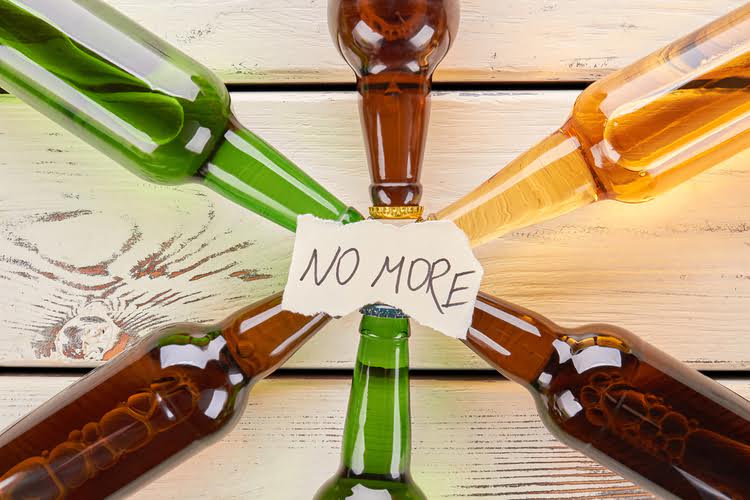For individuals who have pinpointed hops as a trigger, steering clear of particularly hop-intense brews can be an effective way to prevent symptoms. However, avoidance is not always practical or desirable, especially for those who appreciate the unique flavours that hops impart. In these instances, seeking out beers with a lower hop content or switching to drinks bereft of this allergenic element altogether can help reduce the likelihood of an allergic reaction to hops. One possible explanation for the occurrence of hops-induced sneezing is due to the natural vasodilatory effects of alcohol. This can lead to the expansion of blood vessels, including those within the nasal passages, resulting in nasal congestion and a runny nose. This physiological response can bear a semblance to allergic manifestations but lacks the immunological basis that would classify it as a bona fide allergy.
How does the immune system react to alcohol allergies?
These can create a variety of symptoms that resemble either an allergy or a sensitivity,” says Dr. Rood. For mild reactions, antihistamines may help, but consult a healthcare professional for proper guidance. If you’re allergic to wine, you may notice that you sneeze more after drinking it. The negative effects of alcohol on the immune system can further exacerbate allergic responses. Studies have identified a positive correlation between alcohol consumption and the risk of developing perennial allergic rhinitis, highlighting its role in allergy symptomatology.
FAQ 11: Are There “Gluten-Free” Beers That Still Cause a Stuffy Nose?

It’s also essential to monitor for symptoms of high hydrogen sulfide levels in the gut, such as wheezing, shortness of breath, and skin reactions. These symptoms could lead to the necessity of using asthma medications or consulting with an allergy specialist. Allergic rhinitis, commonly known as hay fever, is a frequent trigger for sneezing due to inhaled allergens like pollen, dust, mold, or pet dander. This inhalation prompts an immune response, leading to nasal inflammation and irritation. The release of histamine causes sneezing, a reflex that aids in expelling these allergens. Sudden sneezing episodes can occur without warning, also referred to as sternutation.
Seeking Medical Advice

For mild cases of sulfite intolerance, avoiding products with added sulfites may provide relief. If you experience any of these reactions after drinking red wine, it could be a sign that you are intolerant or allergic to alcohol. It is important to consult with your doctor for an accurate diagnosis and appropriate treatment.
- In addition, beer is often brewed with hops, comprising a compound called lupulin.
- These compounds are often utilised as preservatives in both beers and wines, extending shelf life and maintaining product stability.
- It is important to seek medical advice as soon as possible if you experience any of these symptoms after drinking wine.
- No evidence exists that genetically modified organisms (GMOs) in beers cause intolerance.
- The symptoms can range from mild to severe, and can potentially be life-threatening in rare cases.
It is important to seek medical advice as soon as possible if you experience any of these symptoms after drinking wine. A doctor will be able to determine the cause of your symptoms and provide appropriate medical treatment. In some cases, it may be necessary to discontinue drinking wine altogether to avoid further complications.
Additionally, the preservatives used in alcohol too can be harsh on your stomach, increasing the chances of allergic reactions causing stuffy nose or sinus congestion. The symptoms of alcohol intolerance can include a stuffy or runny nose, skin flushing, red itchy skin bumps, and worsening of pre-existing asthma. While these symptoms may be mild and not life-threatening, they can still be uncomfortable and irritating. The only way to prevent these reactions is to avoid alcohol or limit the amount consumed. But even with our guide on how to get rid of a hangover, you may want to dig deeper beyond the simple remedies and solutions to determine whether there is a real cause for concern here.
- After drinking beer, they may experience a combination of hives, nausea or vomiting, diarrhea, sneezing, wheezing and abdominal pain.
- Additionally, some people may experience swelling of the lips, tongue and throat.
- It can lower the body’s defenses, making it more susceptible to reacting to other potential irritants present in the beer.
- A personal or family history of asthma also increases your chances of developing an allergy.
For example, red wine contains a much higher percentage of histamines when compared to white varieties, so choose wisely if wine sneezes are known to put a damper on your evening. Tracking your reactions after consuming different foods and beverages can provide clues. If you also experience symptoms after eating fermented foods like cheese, yogurt, or sauerkraut, histamine intolerance might be a contributing factor. A doctor or allergist can conduct tests to assess histamine levels and tolerance. As with why do i sneeze when i drink alcohols, this issue comes down to a depletion of enzymes — in this case, enzymes that are required to metabolize Halfway house alcohol in the liver.
It is not uncommon for people to experience sneezing fits after drinking beer. This beer makes me sneeze phenomenon, often called “beer sneezes”, may be more frequent than you think. While this may sound like an allergic reaction, these types of reactions to wine or beer actually have more to do with your immune system.
Why Does Red Wine Affect My Sinuses?
Typical symptoms include a runny nose and congestion, which might be accompanied by postnasal drip, headache and/or a dry cough. No evidence exists that genetically modified organisms (GMOs) in beers cause intolerance. The primary cause of beer intolerance isn’t the presence of GMOs but the body lacking the enzymes to process alcohol or other ingredients. In one 2005 Swedish study, those with asthma, bronchitis and hay fever were more apt to sneeze, get a runny nose or have “lower-airway symptoms” after a drink, especially women.
Causes of Stuffy Nose on Drinking Alcohol & Ways to Get Rid of it?
Long-term management of a hop allergy may involve avoiding certain types of beer and alcohol, reading labels carefully for hop content, and possibly switching to hop-free alcoholic options. They can savour the convivial moments that pair with a pint, without the shadow of allergy-induced sneezes. This level of personalisation in managing one’s health presages a future where the enjoyment of a cold brew rests unspoiled by the spectre of allergic uncertainties. Carrying an EpiPen is recommended for individuals with a history of severe allergic outcomes, as it can provide life-saving medication whilst awaiting further medical intervention. This proactive measure is especially vital for those prone to hops and sneezing when out socialising or unwinding at home. If can hops make you sneeze is a recurring dilemma that hampers your enjoyment of beer, consultation with an allergist can provide tailored advice and insights.
